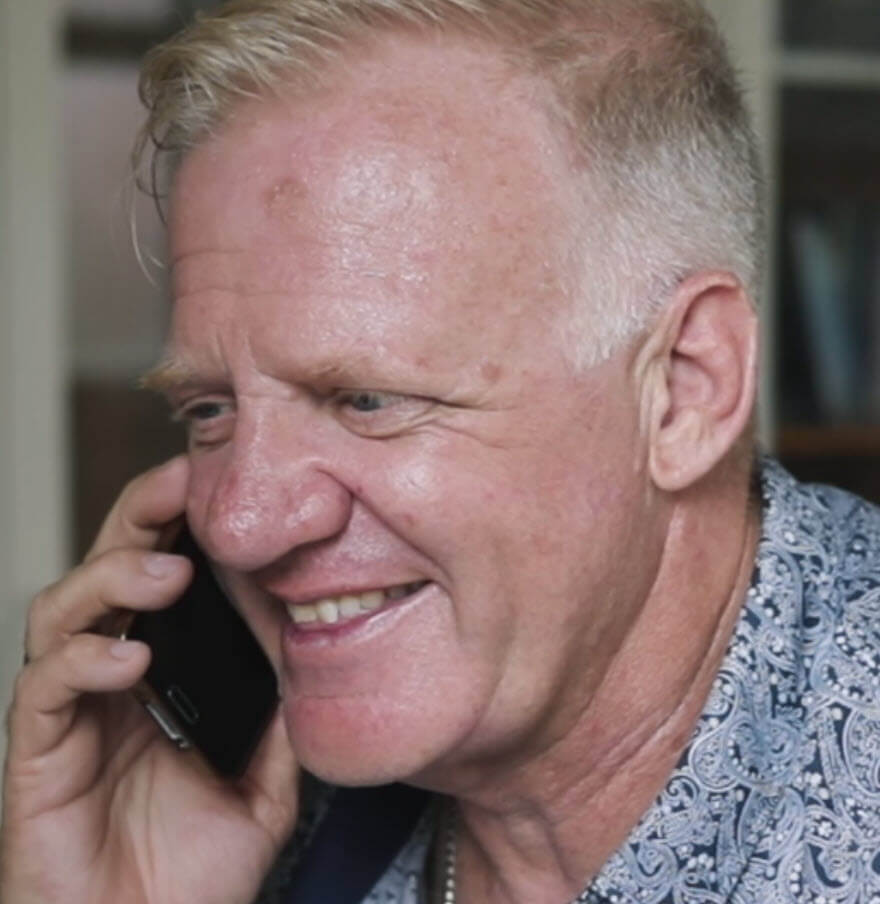Valuing and Protecting Our Volunteers
Strategies to protect your Church and your People

Our volunteers are precious. Week in, and week out, dedicated individuals seek to serve our churches in a myriad of ways. Consider the worship teams who diligently meet midweek to practice and prepare for Sunday worship. Perhaps it is enthusiastic leaders who run engaging Kids Church programs or the gifted hosts who serve the post-service cup of coffee with a smile and a heart for service. All are incredibly valuable and deserve to be protected. Without the dedication of our volunteers, the impact of churches and ministries in our communities would be significantly held back.
Serving the mission of the church and the message of Jesus, volunteering fosters several personal benefits for the individual, including:
- A deeper connection to others
- Building a sense of self-confidence and healthy self-esteem
- Positive impacts on physical and mental health
- A sense of purpose
- Encouraging one to become 'others' focused
- The ability to apply skills learned to other life situations
We must never take our volunteers for granted. Organisations should actively seek to develop a culture that values and protects those who seek to serve generously and humbly from the side-lines. Let us explore the ways that we can protect those who serve us.
Protecting Volunteers

Workplace Health and Safety Laws
In 2012 several States and Territories set about harmonising Occupational Health and Safety (OHS) laws. The aim was to provide a consistent set of Workplace Health and Safety (WHS) guidelines to protect employees and capture volunteers. The legislation recognised that everyone has a right to be safe at work, including volunteers. It acknowledged that volunteers played a vital role in communities throughout Australia and made significant contributions through the provision of unpaid work for organisations every day.
Presently all States and Territories except Victoria adhere to these harmonised WHS laws. Irrespective of which State or Territory you may operate in, it is vital to understand the rights and obligations afforded to volunteers under the WHS laws.
Organisations that employ paid staff must, as far as reasonably practicable, seek to protect the physical and mental safety of all its workers, including volunteers. The obligations set out in the guidelines mean that the volunteer who greets everyone at the door on Sunday deserves the same duty of care as the paid pastoral team member.
You should note that while organisations made up entirely of volunteers and do not employ paid workers are not subject to these WHS laws, it is fair to say you still have a moral duty to extend the same level of care to your volunteers. No organisation wants to suffer crippling reputational damage because they have failed to provide a safe environment for the people who help their organisation run.
Many helpful resources explain how organisations should address their WHS obligations toward volunteers. Following is a link to the Safe Work Australia website and their Essential Guide to Work Health and Safety for Volunteers
How To Protect Your Volunteers
It is essential that, as an organisation, you ensure, as far as is reasonably practicable, that you are protecting the safety of your staff and volunteers.
Reasonably Practicable
This term is used to qualify or limit some work health and safety duties. With work health and safety if something is reasonably practicable it means it is, or was at a particular time, reasonably able to be done, taking into account:
Reference: Safe Work Australia
Ways that you can meet this obligation may be through:
Training
The provision of appropriate personal protective equipment
Ensuring that appropriate first aid facilities are provided or training in the administration of first aid
Documenting your emergency procedures and how to report hazards and incidents
Ensuring that the volunteer is suitable for the role and physically capable of carrying it out
Regular inspection/maintenance of your property (venue) and equipment to ensure volunteers can safely perform their duties
Screening Volunteers
Many churches and ministries are desperate for volunteers. So many tasks require volunteer engagement to keep the organisation ticking. It would be difficult to refuse someone who keenly desires to get involved in your ministry. However, we must be careful not to allow enthusiasm to cloud our assessment of whether a volunteer is appropriate for or capable of carrying out the required role. Proper application and screening processes protect your organisation and the volunteer.
The process may seem unnecessary to some, particularly when volunteers have been members of your organisation for many years. However, this risk management exercise will stand you in good stead if something goes wrong.

Why screen?
- Is the person going to be a good fit for the position? Are they competent? Will they be able to get along with the rest of the team? Do they have the skills required for the role? Are they trustworthy?
- Does the volunteer have any medical or physical conditions you should be aware of, and will the condition impact their ability to carry out their role?
- Failing to screen a volunteer adequately may result in legal action against your organisation if you have breached your duty of care by placing them in the volunteer role. Consider the ramifications of engaging someone convicted of child sexual offences in your Children's Ministry Program without carrying out an appropriate Working With Children Check. In most instances, insurance companies would completely exclude any Public Liability cover to your organisation if the person was to re-offend during their volunteering.
- The process provides some protection for the volunteer. Volunteers can take comfort in the knowledge that all team members have been assessed and vetted on the same basis and measure up to the standard required by the organisation.
- Legislation requires organisations to obtain certain formal screening checks, particularly for work with children and vulnerable people.
Here you can find out more about Working With Children Checks in your State:
- Victoria: Working with Children Check Victoria
- New South Wales: Working with Children Check NSW
- Queensland: Blue Card Applications Apply Queensland
- Northern Territory: Apply for a Working with Children Clearance NT
- Western Australia: Working with Children WA
- South Australia: Apply for a screening check South Australia
- Tasmania: Work With Vulnerable People Tasmania
Churches and ministries should develop a Volunteer Workers Application Form, which gathers vital information for their screening and assessment process. ACS Insurance Services have developed the following template, which you can use as a basis for your form.
Download ACS Volunteer Application Form Template
Checking References
When a person wishes to work with children (or other vulnerable people), legislation requires a Working With Children Check. An extra layer of protection should need volunteers to provide a reference. The reference should be from someone who can attest to the volunteer's suitability for the role or speak to the applicant's character. ACS Financial recommends obtaining two references for people who have been part of your organisation for less than 12 months. These may be from a former church pastor, employer or other reputable sources. One reference may suffice for people who have been part of your organisation for more than 12 months. In this instance, a life group leader or member of your leadership team could provide the reference.
Written or verbal references are acceptable, providing the information is appropriately recorded and documented with the volunteer's application.
Training your volunteers
Your volunteers will only be effective in your ministry if you have provided them with the correct instruction and training.

Volunteers should first be acquainted with your organisation's Code of Conduct. Your Code of Conduct will set the standard for how you expect volunteers to represent your organisation from the beginning. Being briefed on the Code of Conduct will allow you to manage or discipline those who do not comply with your standards
Other areas where volunteers may require instruction or training include:
- Your organisation's Child Protection Policy
- Organisational OHS policies
- Social media policies/expectations
- Use and operation of specialised equipment (e.g. Sound desks, computer equipment, tools)
- Identification and handling of chemicals (e.g. cleaning products)
- Where to access necessary personal protective equipment
- Emergency procedures
- How to report a hazard, incident or complaint
Specific tasks may require more detailed instruction or supervision to ensure the safety of your volunteers.
Top 10 tips for an effective Code of Conduct | Moores
Risk Management Example – Church Working Bees
- Provide participants with appropriate safety equipment and instruction (i.e. lawn mowing – eye and ear protection, suitable clothing, clear instructions on the safe use of equipment).
- Dangerous chemicals must be clearly labelled and secured (paint, weed killers)
- Working at heights – Ensure proper harnessing and anchor points are present and used at heights. Ensure that ladders are in good condition and are well anchored.
- Use of power tools – ensure that tools and equipment are in good condition and that users are given specific instructions on their safe operation.
- Be aware of underground asset locations if any excavation work is needed. Contact Dial Before You Dig before beginning work.
- Instruct volunteers in correct manual handling techniques
The above points also apply to any external community working bee events. Work should be limited to general maintenance tasks (i.e. gardening, painting.). Tasks requiring construction should be supervised and signed off by an appropriately qualified tradesperson to verify the suitability of the job.
Volunteer Contracts
Volunteer or Employee?
In many churches or ministries, it is not uncommon for people to be engaged in positions where part of their role is paid work. At the same time, other areas of their role are undertaken in a voluntary capacity.
Consider the following example – Ethan is employed by the church two days a week as an assistant to the Youth Pastor. Ethan volunteers as a cleaner and gardener for the church property for an additional two days per week.
Workers must be classified correctly. Employees must be paid according to Fair Work/legislative requirements. Employees can expect to enjoy the safety and standards outlined by WHS obligations and be provided with an opportunity to have grievances mediated by industrial tribunals. In contrast, a volunteer has no legal remuneration entitlement, has fewer workplace protections and can be dismissed without notice. The absence of clear volunteer/employment contracts which identify duties could result in litigation and orders for back pay and penalties.
Voluntary duties are often defined where:
- There is no intention to create a legally binding employment relationship between the parties
- There is no obligation for the volunteer to attend the workplace or to perform work
- The volunteer doesn't expect payment for the work
The following resources will help you to establish if you are engaging a volunteer or an employee:
Insurance to protect your volunteers and your ministry
Despite our best intentions, accidents can happen. Volunteers may be injured as a result. In some instances, the actions of our volunteers may cause injury or loss to someone else. There are insurance products available that may help to protect your volunteers but also your organisation. The following are some examples and some scenarios to consider.
Volunteer Workers Personal Accident Insurance
A Volunteer Workers Personal Accident policy will be able to provide some cover for people volunteering for your organisation. These policies will generally respond where a volunteer is injured by accident and not as a result of any negligence on your part.
A Volunteer Workers Personal Accident can often provide the following protection:
- Death and Capital Benefit payment
- Non-Medicare related expenses (e.g. physiotherapy costs)
- Loss of income due to temporary or total disablement
- Domestic home help expenses
- Student tutorial expenses
Claim Example:
Public Liability Insurance
There is always the possibility that a volunteer may suffer an injury because of the negligence of your organisation. The injury could be due to poor instruction or supervision. Sometimes the injury results from a failure to supply proper protective equipment or requiring a volunteer to carry out a dangerous task that breaches standard OHS requirements. An injured person may sue your organisation for their loss or injury.
Claims of this nature can be incredibly costly and would take into consideration:
- Pain and suffering
- Medical costs
- Ongoing rehabilitation costs
- Loss of income
- Loss of future earning ability
- Costs to renovate a claimant's home to accommodate injury/disability
- Investigation costs
- Legal fees
These claims can be costly and take a long time to settle. To pay or defend a claim of this nature, your organisation would need Public Liability Insurance.
Claim Example:
Professional Indemnity Insurance
Volunteers fill many roles. They will preach, teach, provide pastoral advice, or direct prayer ministry. All these activities are seen as the "profession" of the church. Sometimes claims can be made against churches or ministries by someone who feels the content of a sermon or study material is discriminatory or defamatory. Claims can also occur when advice given in pastoral care or prayer ministry is damaging.
Often, the costliest aspect of these claims is investigative expenses and legal costs to defend cases.
To protect your organisation and your volunteers, you would require Professional Indemnity Insurance.
Management Liability/Associations Liability Insurance
When a volunteer is injured due to a breach of OHS or WHS guidelines, your board of directors or elders may be sued for breaching their responsibility to manage a safe workplace. To defend or protect your directors, your organisation would require a Management Liability or Associations Liability Insurance policy that covers OH&S Defence Costs.
Often directors or board members of your church are volunteers and, therefore, should be appropriately protected.
Considering that so many aspects of our ministries rely on volunteers, many programs would grind to a halt if not for these essential members of our teams. We should never take our volunteers for granted.
To that end, we must do our part to look after our volunteers through sound policies, planning and protection, which actively show just how valued they are.
ACS Financial has provided insurance and Protection products and risk management advice to churches and ministries Australia-wide for nearly 30 years. Many of our team members regularly volunteer in their own church families or other community programs. They know why volunteers love to do what they do and how churches and ministries can best protect them. Our team can speak to you about the range of products and resources ACS Financial has available to help protect your volunteers.
If you or your team have any questions about how we might be able to help you to champion your volunteers, don't hesitate to get in touch with us at 1800 646 777 or visit our website at www.acsfinancial.com.au
DISCLAIMER: The information on this website reflect some of the commercial aspects and potential risks/obligations for your Church, School or Organisation. The information is given as a guide only and does not represent a definitive list or legal view in any way shape or form. You are advised to seek your own professional advice on all your individual needs. ACS Financial Pty Ltd (ACN 062 448 122) (AFSL 247388).


